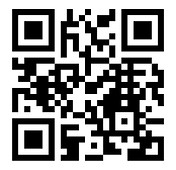
Concerned about a spot on your skin?
Take A Picture.
Welcome to Helfie AI Skin Checks - easy, instant, accurate and affordable, so you can check lesions regularly.

Know Instantly
If a lesion is low, medium or high risk for skin cancer.


In Brief Skin cancer is the most common type of cancer globally, with an estimated 9.9 million new cases diagnosed each year - and unfortunately many millions more are left undiagnosed. The three main types of skin cancer are basal cell carcinoma, squamous cell carcinoma, and melanoma. Melanoma is the least common but most dangerous type, accounting for the majority of skin cancer deaths. The incidence of skin cancer is increasing worldwide, with rates up to three times higher than they were in the 1980s in some countries. Risk factors for skin cancer include exposure to UV radiation from the sun or tanning beds, fair skin, a family history of skin cancer, and a weakened immune system. Skin cancer is highly curable when detected and treated early, but can be deadly if left untreated or diagnosed at an advanced stage.
Why Check? Regular checking for skin cancer is important because early detection is key to successful treatment. Skin cancer is the most common type of cancer, and it can occur in people of all ages and skin types. Checking for skin cancer involves checking your skin for any suspicious moles, growths, or spots that could indicate the presence of cancer. Early detection allows for treatment before the cancer has a chance to spread to other parts of the body, which can greatly improve the chances of successful treatment. Detecting skin cancer early is crucial because it is highly curable when caught in its early stages. However, if left undetected and untreated, skin cancer can spread to other parts of the body, leading to potentially fatal consequences. For example, melanoma, a type of skin cancer, can spread quickly and aggressively if left untreated. If it reaches an advanced stage, it can be difficult to treat and may become life-threatening. In addition, regular checking can help identify areas of the skin that may be at increased risk for cancer, allowing for early intervention to prevent the development of skin cancer. Whilst it is recommended that individuals perform regular self-examinations of their skin and have regular check-ups with a dermatologist or other healthcare professional who can evaluate any concerning changes in the skin, this isn't always possible. This is where Helfie steps in by making everyday checking possible. In short, the importance of early detection of skin cancer cannot be overstated. By being vigilant about monitoring your skin for changes and seeking medical attention when necessary, you can protect yourself against the potentially devastating consequences of advanced.
Dig Deeper
Explore Helfie Skin














-
Enjoy complimentary access to Helfie AI, including all health checks









.png)